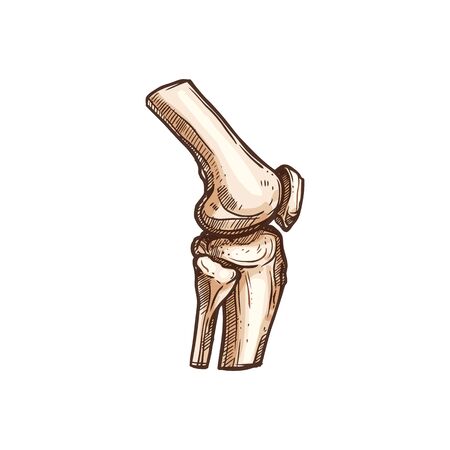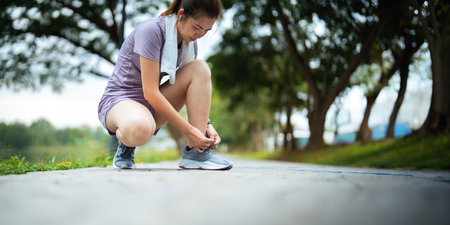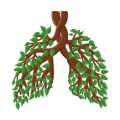Understanding the Emotional Impact of Injury
Ankle and knee injuries are more than just physical setbacks. They can also affect your mental and emotional well-being, often in ways that might catch you off guard. Whether you’re an athlete, a weekend warrior, or just someone who enjoys staying active, getting sidelined by an injury can feel overwhelming.
Common Emotional Responses to Injury
When you’re dealing with ankle or knee injuries, it’s normal to experience a range of emotions. Some of the most common feelings include frustration, anxiety, and even isolation. Recognizing these emotions is an important step in your recovery journey.
| Emotion | How It Might Show Up | Why It Happens |
|---|---|---|
| Frustration | Feeling impatient about slow progress or limitations in daily activities | You want to get back to your routine quickly but recovery takes time |
| Anxiety | Worrying about re-injury or not healing properly | The uncertainty about your recovery path can make you anxious |
| Isolation | Feeling left out from social events or group activities | You may need to rest or skip activities, leading to less social interaction |
The Importance of Acknowledging Your Feelings
It’s totally normal to experience these emotional ups and downs after an injury. In American culture, there’s often a “tough it out” mentality—especially when it comes to sports and physical activity. However, ignoring how you feel emotionally can actually slow down your overall recovery process.
Why Emotional Awareness Matters
Pretending everything is okay or bottling up emotions may lead to increased stress or even depression. On the other hand, recognizing and talking about your feelings can help you manage them better and set you up for a healthier recovery—both physically and mentally.
Tips for Managing Your Emotions During Recovery:
- Talk About It: Share how you’re feeling with friends, family members, or a mental health professional.
- Stay Connected: Even if you can’t join all your usual activities, try to stay involved with your social circle in other ways.
- Set Realistic Goals: Celebrate small milestones during recovery instead of only focusing on the end result.
- Practice Self-Compassion: Remind yourself that healing takes time and it’s okay to have tough days.
If you notice ongoing sadness, persistent anxiety, or feel disconnected for long periods, don’t hesitate to seek support. Addressing the emotional side of injury is just as important as caring for your body during the healing process.
2. Coping Strategies for Setbacks and Challenges
Understanding Emotional Setbacks During Recovery
Recovering from an ankle or knee injury isnt just about healing physically—its also a journey that can take a toll on your emotions. You might feel frustrated, anxious, or even down when progress seems slow or you face unexpected setbacks. These feelings are completely normal, especially in a culture where being active and independent is highly valued.
Practical Ways to Manage Emotional Setbacks
Here are some strategies that can help you cope with the emotional ups and downs during your recovery:
| Coping Strategy | How It Helps | Tips to Get Started |
|---|---|---|
| Positive Self-Talk | Keeps your mindset optimistic and reduces negative thinking | Replace thoughts like “Ill never get better” with “Im making progress every day, even if its slow.” |
| Mindfulness Practices | Lowers stress and helps you stay focused on the present moment | Try simple breathing exercises or guided meditation apps like Headspace or Calm for a few minutes daily. |
| Seeking Support from Loved Ones | Makes you feel less alone and more understood during tough times | Share your feelings with family, friends, or join online support groups for people recovering from injuries. |
More Ways to Stay Positive During Recovery
- Set Small Goals: Celebrate small wins, such as taking a few extra steps or bending your knee a little further than yesterday.
- Keep a Journal: Write about your progress and how you’re feeling. This can help you see how far you’ve come over time.
- Stay Connected: Even if you cant join group activities yet, keep in touch with friends through calls, texts, or social media.
If You Need More Help
If feelings of sadness or frustration start to feel overwhelming, it’s okay to reach out for professional support. Many Americans talk with therapists or counselors during tough times—there’s no shame in asking for help when you need it.

3. The Role of Support Systems in Recovery
Recovering from an ankle or knee injury isnt just about physical healing—your emotional and psychological wellbeing matter just as much. One of the most powerful tools you have during this journey is your support system. Connecting with friends, family, healthcare providers, and community support groups can make a big difference in how you cope with challenges, stay motivated, and celebrate progress.
Why Support Matters
Facing recovery alone can feel overwhelming. Having people around you who care and understand what you’re going through provides comfort and encouragement. Whether it’s someone to talk to on tough days or a buddy to help with daily tasks, these connections help reduce feelings of isolation and boost your mood.
Types of Support Systems
| Support Source | How They Help |
|---|---|
| Friends & Family | Offer emotional support, help with everyday tasks, provide motivation, and keep spirits high. |
| Healthcare Providers | Give professional guidance, answer questions about your recovery, and adjust treatment plans as needed. |
| Support Groups | Connect you with others going through similar experiences for advice, shared stories, and peer encouragement. |
| Community Resources | Offer programs like group rehab classes, online forums, or local meetups to foster connection and learning. |
Tips for Building Your Support Network
- Reach Out: Don’t hesitate to ask for help or let others know what you need—people often want to assist but may not know how.
- Stay Connected: Use phone calls, text messages, or social media to keep in touch with loved ones, especially if mobility is limited.
- Join Local Groups: Many communities have in-person or online support groups for injury recovery where you can share experiences and tips.
- Lean on Professionals: Regularly communicate with your doctors, therapists, or counselors for both medical advice and emotional support.
Remember, it’s okay to rely on others during your recovery. Letting people in not only helps you heal physically but also keeps your mind and spirit strong as you navigate the ups and downs of ankle or knee injury recovery.
4. Staying Mentally Engaged and Motivated
Keeping Your Mind in the Game During Recovery
Recovering from an ankle or knee injury can be tough, not just physically but emotionally too. It’s normal to feel frustrated or down at times. The good news is, there are practical ways to stay motivated and keep your spirits up as you heal. Here are some helpful tips to guide you:
Set Realistic Goals
Setting clear and achievable goals can make a big difference in how you approach each day of recovery. Break your recovery into small milestones, whether it’s walking a few extra steps or regaining a certain range of motion. Write these goals down and track your progress regularly.
| Goal Type | Example | Why It Helps |
|---|---|---|
| Short-Term | Do ankle stretches twice daily for one week | Keeps you focused on daily progress |
| Mid-Term | Walk without crutches by end of month | Gives you something bigger to aim for |
| Long-Term | Return to your favorite sport by summer | Makes the hard work feel worthwhile |
Celebrate Small Wins
It’s important to recognize and celebrate every bit of progress, no matter how small. Maybe you put on your shoe without help, or made it through a whole physical therapy session—give yourself credit! Treat yourself to something you enjoy, like a favorite snack or a movie night, when you reach a milestone.
Stick to Daily Routines
Your regular routines give you structure and a sense of normalcy. Even if you can’t do everything like before, try to wake up at the same time, eat balanced meals, and keep up with hobbies that don’t stress your injury. This helps your mind stay active and positive.
Simple Ways to Maintain Motivation Each Day:
- Create a daily checklist: Mark off each small task or exercise as you complete it.
- Connect with others: Stay in touch with friends or support groups who understand what you’re going through.
- Visualize success: Take a few minutes each day to picture yourself moving freely again.
- Reward yourself: Plan little treats for meeting weekly goals, like ordering takeout from your favorite spot.
- Stay inspired: Read stories about others who have recovered from similar injuries.
The journey may feel long sometimes, but by staying mentally engaged and celebrating every step forward, you’ll boost both your mood and your motivation throughout recovery.
5. When to Seek Professional Help
Recovering from an ankle or knee injury isn’t just about physical healing—your emotional and psychological health matters too. Sometimes, the stress, frustration, or sadness that comes with recovery can be overwhelming. It’s important to know when it might be time to reach out for help from a mental health professional.
Signs You Might Need Extra Support
Everyone feels down sometimes during recovery, but if these feelings linger or get worse, you shouldn’t ignore them. Here are some common signs that suggest it may be time to seek professional support:
| Sign | What It Looks Like |
|---|---|
| Persistent Sadness | Feeling down most days, losing interest in things you used to enjoy |
| Anxiety or Worry | Constantly feeling nervous, restless, or on edge about your recovery or future |
| Trouble Sleeping | Having difficulty falling asleep or staying asleep due to worry or negative thoughts |
| Social Withdrawal | Avoiding friends, family, or activities because of your mood or injury |
| Lack of Motivation | Struggling to do daily tasks or follow through with rehab exercises |
| Negative Self-Talk | Frequently thinking you’ll never get better, blaming yourself for being injured, or feeling hopeless about the future |
| Irritability or Anger | Getting easily frustrated or snapping at others more than usual |
| Thoughts of Self-Harm* | If you ever feel like hurting yourself, seek help immediately (call 988 Suicide & Crisis Lifeline) |
*If you’re experiencing thoughts of self-harm or suicide, call the 988 Suicide & Crisis Lifeline right away for immediate support.
Finding Culturally Sensitive Counseling in the U.S.
The United States is wonderfully diverse, and it’s important to find mental health resources that respect your cultural background and values. Here’s how you can look for culturally sensitive counseling:
- Ask Your Doctor: Many healthcare providers can refer you to therapists who understand your cultural needs.
- Use Online Directories: Websites like Psychology Today’s Therapist Finder, Inclusive Therapists, and Therapy for Black Girls/Boys/Men let you filter for therapists by race, language, religion, and specialties.
- Community Centers: Local community organizations often have lists of trusted counselors who speak your language or understand your cultural experiences.
- Cultural Affinity Groups: Some therapists specialize in working with specific cultural groups (e.g., Asian American therapists, Latinx therapists). Search for “multicultural therapist near me” online.
- Your Insurance Provider: Check your insurance company’s website for in-network mental health professionals with multicultural experience.
- Telehealth Services: If there aren’t many options nearby, online therapy platforms can connect you with therapists from across the U.S. who fit your preferences.
Your Well-being Matters—You Don’t Have to Go Through This Alone!
If you’re struggling emotionally as you recover from an ankle or knee injury, seeking help is a sign of strength—not weakness. There are caring professionals ready to support you every step of the way.


